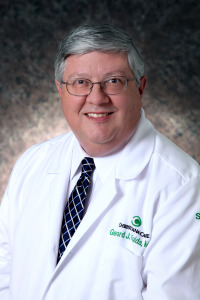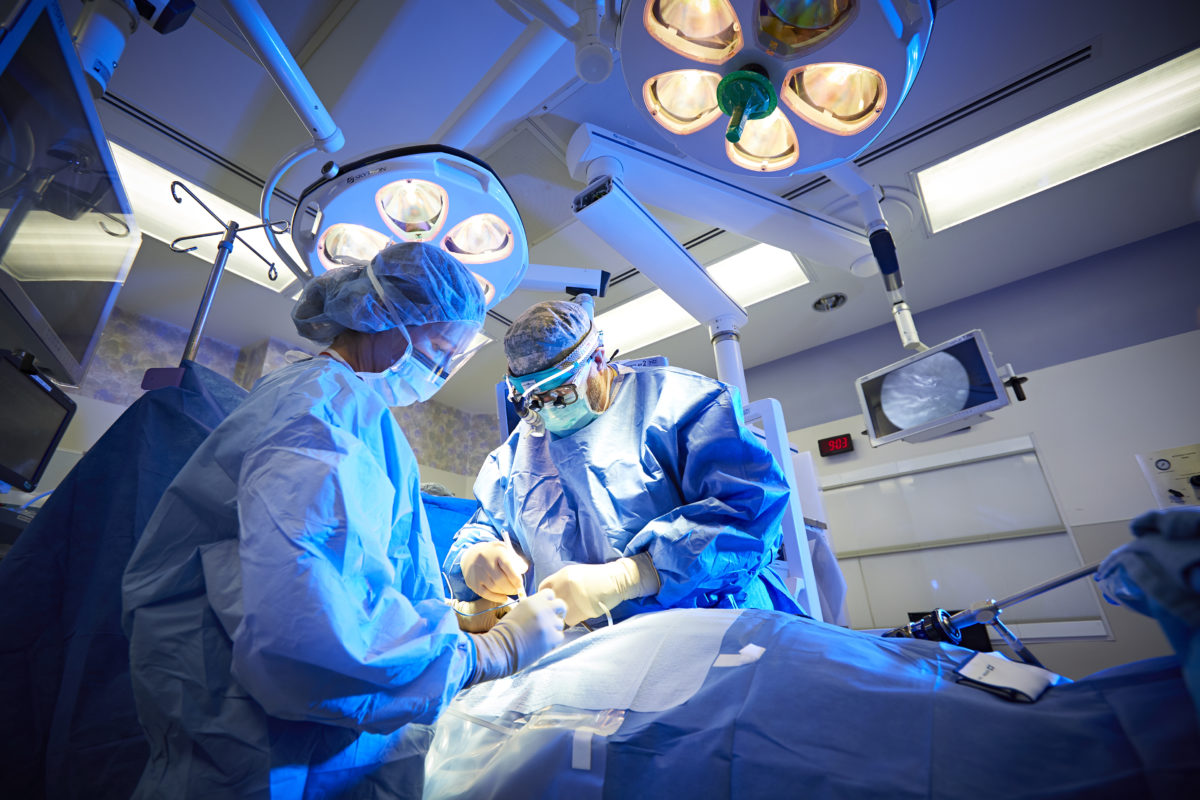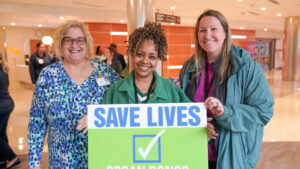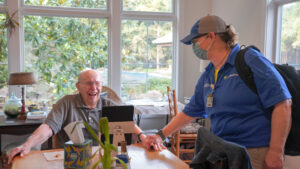The American College of Surgeons (ACS) has recognized Christiana Care Health System for surgical excellence in caring for its sickest patients and named it one of 66 hospitals in the top 10 percent of outcomes after surgery.
The ACS National Surgical Quality Improvement Program, or NSQIP, has long tapped the best available surgical data — adjusted for patients’ health status before their procedure — to help hospitals analyze their patient outcomes. Now, ACS has added a “High Risk Meritorious List” to help hospitals zero in on outcomes for their sickest patients.
Christiana Care has earned “meritorious” recognition in both categories, meaning patients who undergo surgery in a Christiana Care facility are less likely than average to experience surgical complications or death. The program tracks the following seven complications within 30 days of surgery:
- Cardiac events (heart failure and myocardial infarction).
- Renal failure.
- Surgical site infection.
- Pneumonia.
- Unplanned intubation.
- Urinary tract infection.
- Ventilator use exceeding 48 hours.
NSQIP uses a systematic sampling protocol to select patients to track, then uses long-standing models to adjust their risk, allowing for apples-to-apples comparisons among low- and high-risk patients.
For the seventh year in a row, Christiana Care has not only seen above-average outcomes; it also earned a place in the top 10 percent of hospitals. That means Christiana Care patients are much less likely to see their health derailed by life-changing complications after surgery.

“Good outcomes are about excellence inside the operating room and beyond, shaped by the values our people live out every day,” said Gerard J. Fulda, M.D., chair of the Department of Surgery and physician leader of the Surgical Services Service Line. “That deep commitment to the lives we touch is what motivates our surgical teams to prepare their neighbors for their operations and our surgeons to follow the best evidence-based practices for their patients to achieve optimal health.”
Ready for High Risk
Whether because of their age or pre-existing conditions, some patients enter surgery with a higher chance of developing one or more of the seven complications tracked by NSQIP. This year, the American College of Surgeons began tracking the patients whose expected risk for these complications put them in the highest quartile in each complication.
Comparing only these patients gives hospitals a way to gauge their success at treating their sickest patients.
Part of being ready for high-risk patients means helping them be as healthy as possible when they enter the operating room, said Craig Martine, MSN, RN, program manager for Performance Improvement at Christiana Care. For example, a patient with diabetes whose blood sugar is under control is less susceptible to post-surgical infections because high blood sugar interferes with the body’s ability to heal.
Christiana Care is working with joint surgery patients and other select groups of patients to optimize their health before they enter surgery, Martine said, and the organization continues to expand this effort.
Learning Where to Improve
The NSQIP program is about learning where you stand compared with your peers and helping to identify areas to improve.
Among the many quality improvement projects borne out of the data is an effort to reduce post-surgical infection rates for patients with spinal surgeries, said Dennis Witmer, M.D., vice chair for Surgical Quality and Performance Improvement. The resulting standardized road map for these patients includes preventive antibiotics and other steps to prepare them for surgery, along with antiseptic procedures for the surgery itself and follow-up care, Dr. Witmer said.
Dr. Witmer said the data behind the recognition reflects the cultures and values of surgeons and perioperative teams.
“They care a lot about patient outcomes and hold themselves to the highest professional standards,” he said. “Though what happens in the operating room is clinically paramount, we work in a system that requires excellent perioperative services to be effective and maximize patients’ outcomes.”
Just as the data can reveal areas of improvement for surgeons, it also can help answer a simple question for patients: At which hospitals am I less likely to experience a surgical complication?
Dr. Witmer said patients often research hospitals before they undergo surgery and ACS data provides another quality indicator, including for those at the highest risk of a complication.



